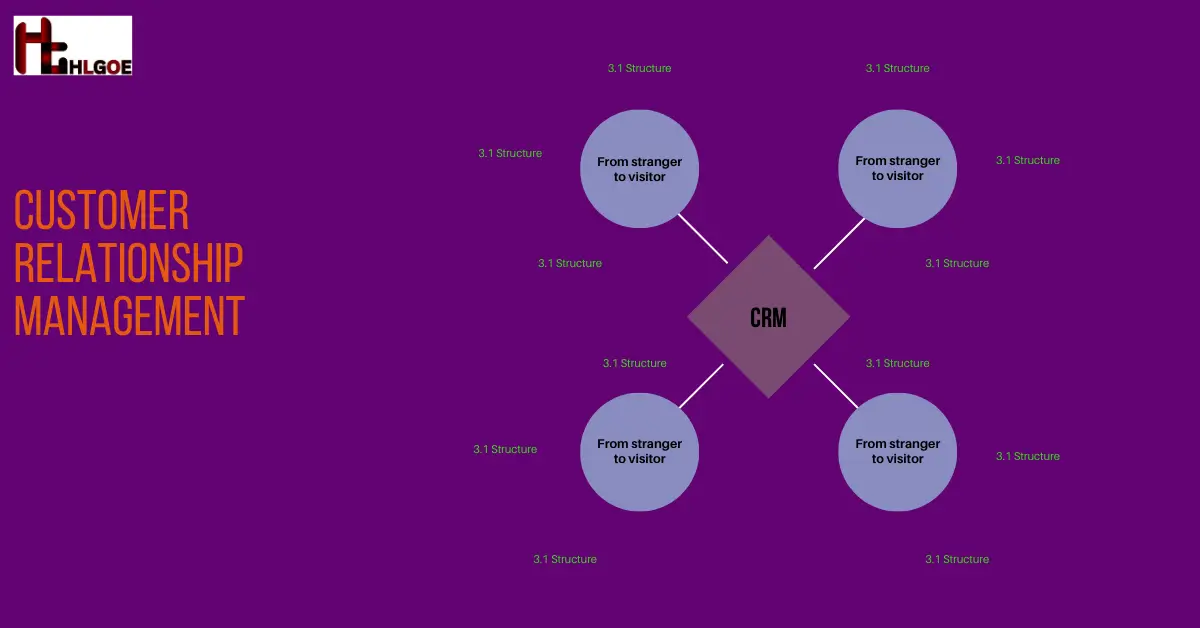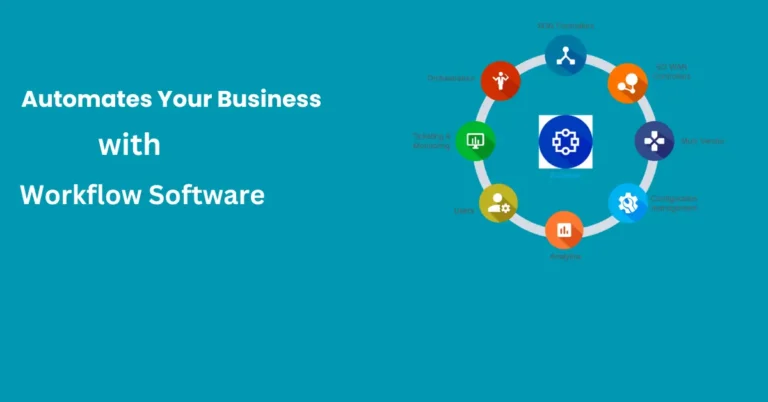How to Choose the Right CRM Software for Your Business
Choosing the right CRM software for your business is a strategic decision that can drive significant improvements in sales, marketing, and customer service. A Customer Relationship Management (CRM) system consolidates customer data, automates key processes, and fosters stronger relationships with clients. With the right CRM, your business can enhance productivity, increase revenue, and provide an exceptional customer experience.
However, selecting the ideal CRM software can take time and effort due to the myriad of options available today. Each CRM platform offers a unique set of features, pricing plans, and capabilities tailored to specific business needs. How do you choose one that aligns perfectly with your goals?
This guide will delve into the essential factors to consider when selecting CRM software for your business, including usability, scalability, security, and integrations. It will also explore advanced capabilities like analytics and AI-driven insights to help you future-proof your investment. By the end, you’ll be equipped with the knowledge to make an informed choice that positions your business for growth and success.
Why Every Business Needs CRM Software
Understanding the Importance of CRM
A well-chosen CRM software for your business provides more than just a repository for customer information, it’s a tool that transforms how your organization engages with its audience. Here’s why businesses across all industries are adopting CRM solutions:
- Streamlining Processes: Automate repetitive tasks, such as data entry and follow-up reminders, freeing up your team for strategic activities.
- Improved Collaboration: Enable seamless communication and collaboration among departments by providing a centralized platform.
- Personalized Customer Experiences: Use customer data to create targeted marketing campaigns and offer tailored solutions.
- Enhanced Decision-Making: Access real-time analytics to make data-driven decisions that optimise operations.
- Boosted Customer Retention: Track customer interactions to address pain points and improve satisfaction.
The benefits of CRM tools extend beyond customer management they contribute to a holistic improvement in business operations, enabling growth in competitive markets.
Understanding Your Business Goals and CRM Needs
Setting Clear Objectives
Before exploring options for CRM software for your business, it’s crucial to define your goals. What do you hope to achieve with a CRM system? Your objectives will dictate the features and capabilities to prioritize.
Common CRM Goals
- Sales Growth: Automate leads tracking, scoring, and follow-ups to close deals faster.
- Marketing Efficiency: Create segmented campaigns that resonate with specific customer groups.
- Customer Service Excellence: Resolve customer issues quickly through ticket management and self-service portals.
- Operational Alignment: Foster better coordination between sales, marketing, and customer support teams.
Matching Goals to Features
| Goal | Key CRM Features |
| Generate more leads | Lead capture forms, marketing automation |
| Improve sales tracking | Sales pipelines, deal tracking |
| Enhance customer retention | Customer support ticketing, follow-up automation |
| Measure performance | Customizable dashboards, real-time reporting |
By clarifying your objectives, you’ll be better equipped to evaluate CRM platforms and select one that aligns with your business’s needs.
The Role of Scalability in CRM Software
Why Growth Matters
The best CRM software for your business should accommodate your current needs while being prepared for future expansion. Whether you’re a small startup planning to scale or an enterprise with ambitious growth targets, scalability is key.
Scalability Considerations
- User Limits: Ensure the CRM can accommodate additional users as your team grows.
- Feature Expansion: Look for platforms that offer advanced tools, such as AI-powered analytics or workflow automation, that can be added as needed.
- Adaptability: A scalable CRM can be customized to suit new processes, products, or services as your business evolves.
Real-Life Example
A digital marketing agency initially used a basic CRM to track client communications. As the agency grew, it required features like project management tools and advanced reporting. Their scalable CRM allowed them to upgrade seamlessly without data loss or disruptions.
Prioritizing User-Friendly CRM Software for Your Business
Ensuring Team Adoption
Even the most advanced CRM system will fail if it’s not user-friendly. Selecting a platform with an intuitive interface ensures your team can quickly adopt and leverage its capabilities.
Features That Enhance Usability
- Drag-and-Drop Dashboards: Simplify customization and data visualization.
- Mobile Accessibility: Allow on-the-go access for remote or field teams.
- Integrated Tutorials: Provide in-app guidance to help new users get started.
Best Practices for Adoption
- Provide Training: Ensure all team members understand the system’s functionality.
- Appoint a Champion: Designate a CRM champion who can provide support and address queries.
- Start Simple: Roll out the CRM with core features first and add advanced capabilities gradually.
Integration Capabilities of CRM Software
The Need for Seamless Connectivity
Effective CRM software for your business should integrate smoothly with existing tools and systems to create a unified workflow.
Common Integrations
- Email Marketing Tools: Sync with platforms like Mailchimp or HubSpot to automate email campaigns.
- E-commerce Platforms: Connect with Shopify or WooCommerce to monitor customer journeys.
- Social Media Channels: Integrate with tools like Hootsuite to track social interactions.
- Accounting Software: Link with QuickBooks or Xero for streamlined financial management.
Benefits of Integration
- Reduce manual data entry by syncing information across platforms.
- Gain a holistic view of customer interactions.
- Simplify reporting by consolidating data sources.
Evaluating Security and Compliance Features
Keeping Data Secure
In today’s digital world, data breaches can result in significant financial and reputational damage. When choosing CRM software for your business, prioritize platforms that offer robust security measures.
Key Security Features
- Two-Factor Authentication: Adds an extra layer of protection.
- Data Encryption: Safeguards sensitive customer information.
- Access Controls: Restrict access to authorized personnel only.
For a detailed discussion on software security, refer to our blog, Secure Software Solutions: How to Protect Your Data and Stay Safe from Cyber Threats.
Analytics and Reporting in CRM Software
Harnessing the Power of Data
One of the most valuable aspects of modern CRM software for your business is its ability to provide actionable insights through advanced analytics.
Analytics Capabilities
- Sales Performance Tracking: Monitor deals, pipelines, and revenue forecasts.
- Customer Behavior Insights: Understand purchasing patterns and preferences.
- Campaign Effectiveness: Evaluate marketing campaign ROI in real time.
These insights empower businesses to refine strategies, allocate resources effectively, and stay ahead of competitors.
Testing CRM Software Before Buying
Why Trials Are Essential
Many CRM vendors offer free trials or demos to help you evaluate their systems. Take advantage of these opportunities to test how well the CRM meets your needs.
Key Areas to Test
- Ease of Use: Ensure your team can navigate the system effortlessly.
- System Reliability: Check performance under different conditions.
- Integration Feasibility: Verify compatibility with existing tools.
Comparing Costs and ROI
Budgeting for CRM Software
When evaluating CRM software for your business, consider not just the upfront cost but also the long-term value it brings.
Common Pricing Models
- Subscription-Based: Monthly or annual fees based on user count and features.
- Freemium Plans: Basic features are free, with optional upgrades.
- Custom Pricing: Tailored plans for enterprises with specific needs.
Conclusion
Investing in the right CRM software for your business is not just a technological decision but it’s a strategic commitment to enhancing customer relationships and driving sustained growth. A well-chosen CRM system empowers your team to work smarter, not harder, by automating repetitive tasks, centralizing customer data, and providing actionable insights that improve decision-making.
The process of selecting the ideal CRM software involves understanding your business’s unique needs and aligning them with a platform that offers the right balance of features, scalability, and usability. Whether your goal is to boost sales, streamline marketing efforts, or enhance customer service, the right CRM can help you achieve these objectives efficiently and effectively.
Security is another critical factor to consider. In an age where data breaches and cyber threats are becoming increasingly common, prioritizing a CRM system with robust security measures ensures that your customer data remains protected. Additionally, integrating your CRM with other essential tools, such as email platforms, marketing software, and e-commerce systems, creates a seamless workflow that enhances productivity across all departments.
Remember, a CRM system is more than a tool and a long-term investment in your business’s growth and success. While cost is an important consideration, the value it provides in terms of efficiency, improved customer satisfaction, and better decision-making far outweighs the initial expense.
If you’re looking for ways to streamline operations further and enhance efficiency, consider exploring our related blog, How to Automate Your Small Business with Workflow Software. Workflow automation tools can complement your CRM by optimizing repetitive tasks, improving team collaboration, and saving valuable time for strategic priorities.
Ultimately, the right CRM software is not just a choice. Still, it’s a foundation for building meaningful relationships with your customers, optimizing your operations, and ensuring sustainable growth for your business. Take the time to choose wisely, and you’ll reap the rewards for years.







